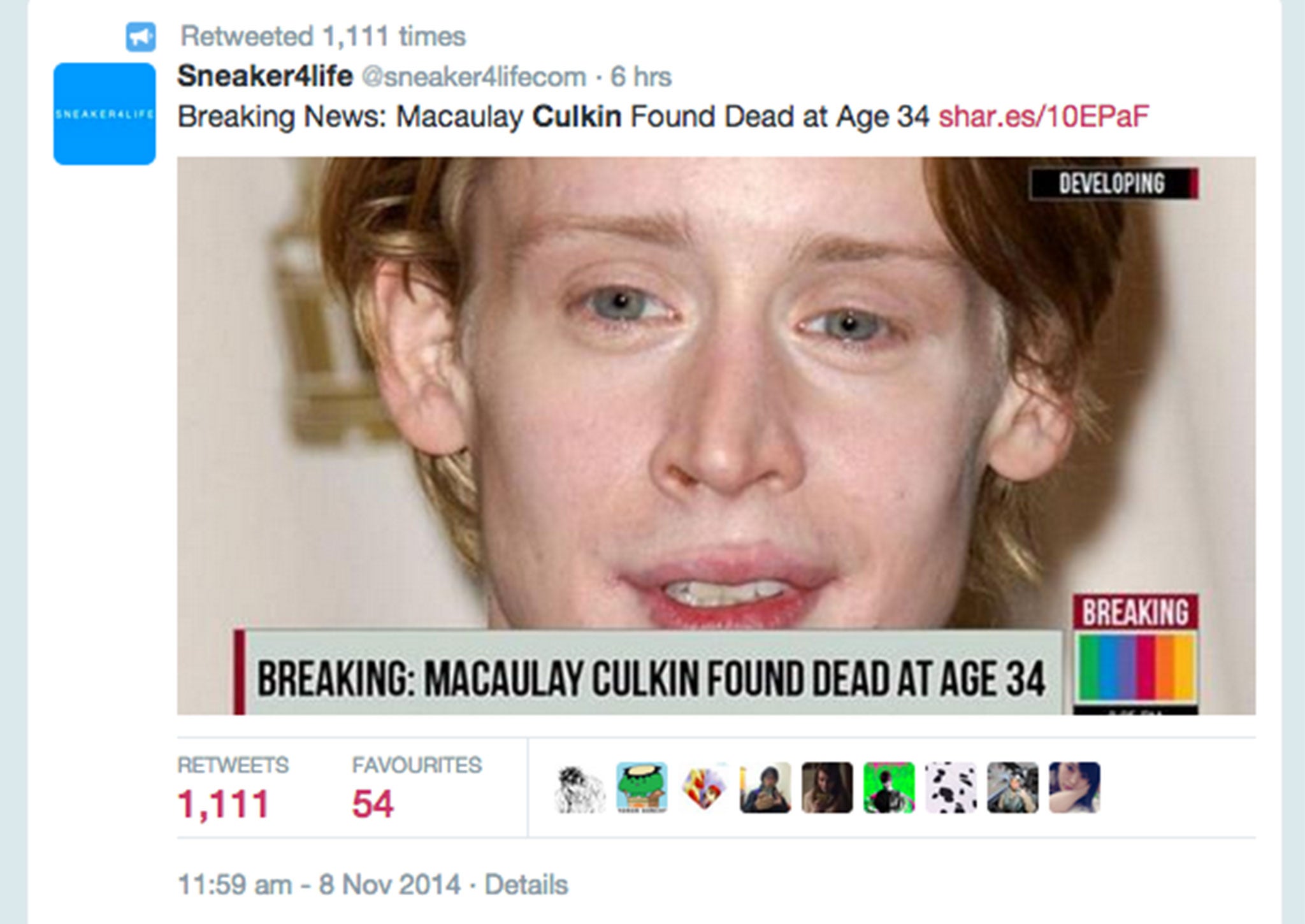Macaulay Culkin death hoax: Now social media is a news source, it’s time it started acting like one
It would be nice to know that the 'news' we’re reading wasn’t cooked up by a bored teenager with a blog

Have you heard? Macaulay Culkin’s dead, for the second time this year. So are Lady Gaga, Usher, Jackie Chan and Chris Brown. I know, because Facebook told me.
Of course, none of these people are actually dead. All have been victims of something enticingly called the “celebrity death hoax”: where a story from a small, little-known website somehow goes viral, convincing millions around the world that their favourite star has died.
Cue “RIP” tweets and statuses, mythbusting stories from real media organisations (or, in Jackie Chan’s case, an Instagram snap of him holding that day’s newspaper), and embarrassed retractions. Rinse and repeat.
Of course, inaccurate or made-up stories have circulated since the media first began. Whoever announced Macaulay Culkin’s death has an ancient kindred spirit in the boy who cried wolf, and a more recent one in Mark Twain, who invented a story about the unearthing of a 100-year old petrified man in his town (they had less celebrities in those days).
But social media has only made the effect of hoax stories worse. Culkin’s death made it onto the “trending” sections of both Twitter and Facebook, which at a glance offer the top stories of the day to those (myself included) who don’t buy papers or tune into hour-long news broadcasts.
The functions these work on have no verification system, and are even predisposed to bumping up hoax stories: the algorithms pick topics based on sudden surges in popularity.If a thousand Beliebers tweet that Lady Gaga’s dead then she is, as far as Twitter's concerned.
People use Twitter and Facebook to share news, too. Again, both sites make no judgement on sources. Twitter shortens links to stories so it’s not clear where they came from; on Facebook, stories are always styled up identically - summary, headline, picture. Neither forefronts a story’s source, or flags up sites that have been reported as unreliable. Facebook timelines and, increasingly, Twitter feeds, bump up the most read and shared stories. Whether they’re true is up to us to find out.
The lack of verification does these sites’ users a disservice. One of social media’s greatest strengths is its ability to spread information quickly, and we’re arguably better informed about world events than we ever have been before. But it would be nice to know that the “news” we’re reading wasn’t cooked up by a bored teenager with a blog and the ability to make up police quotes.

In August, Facebook test-ran a feature that marked out links from satire sites so people didn’t take these stories seriously. The site also employs moderators responsible for deleting offensive posts, who eventually pulled down Culkin's memorial Facebook group. These are steps in the right direction, but so much more can be done.
Social media is, increasingly, a shopfront for the media as a whole - it’s time it introduced quality control.

Join our commenting forum
Join thought-provoking conversations, follow other Independent readers and see their replies